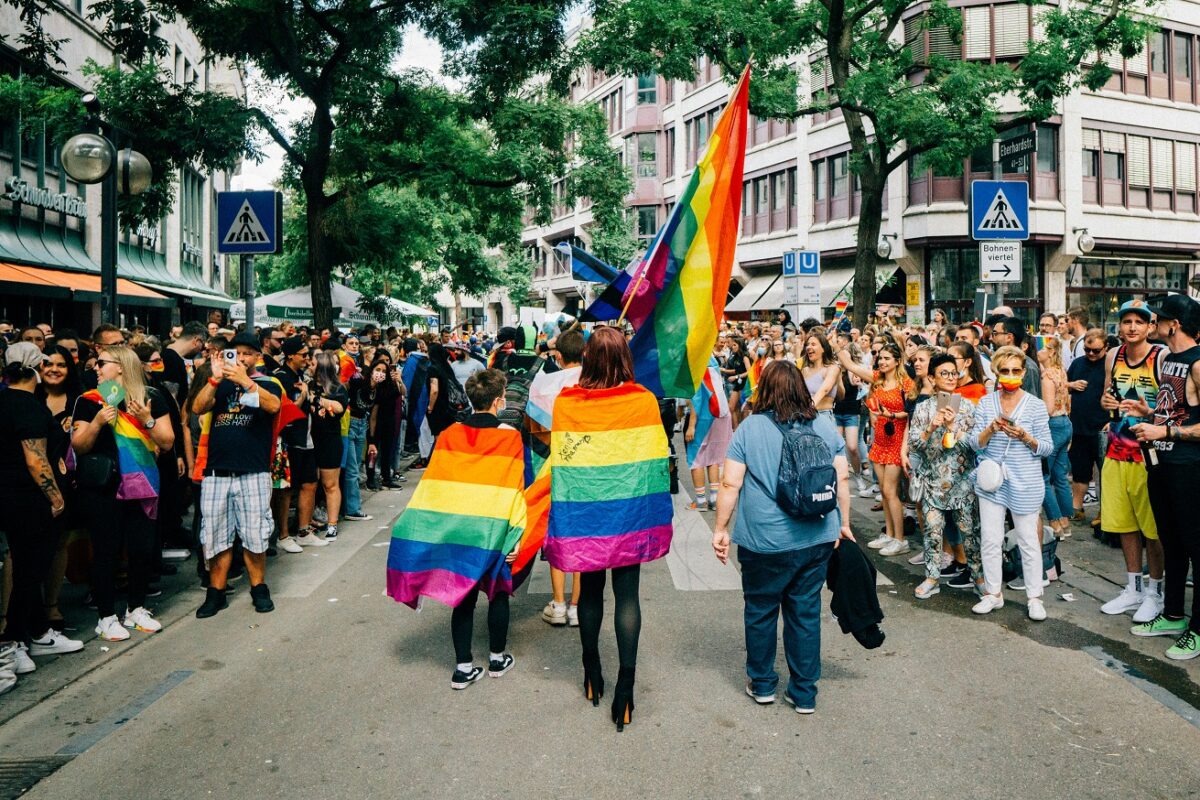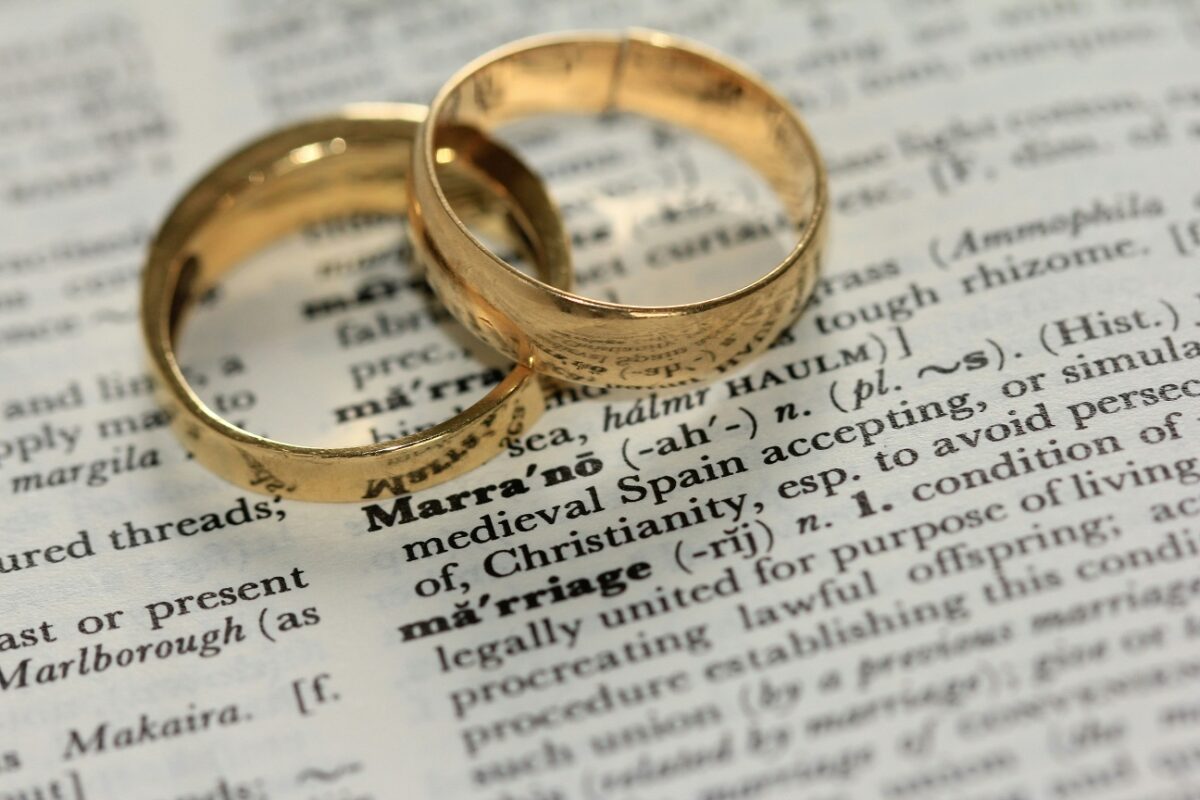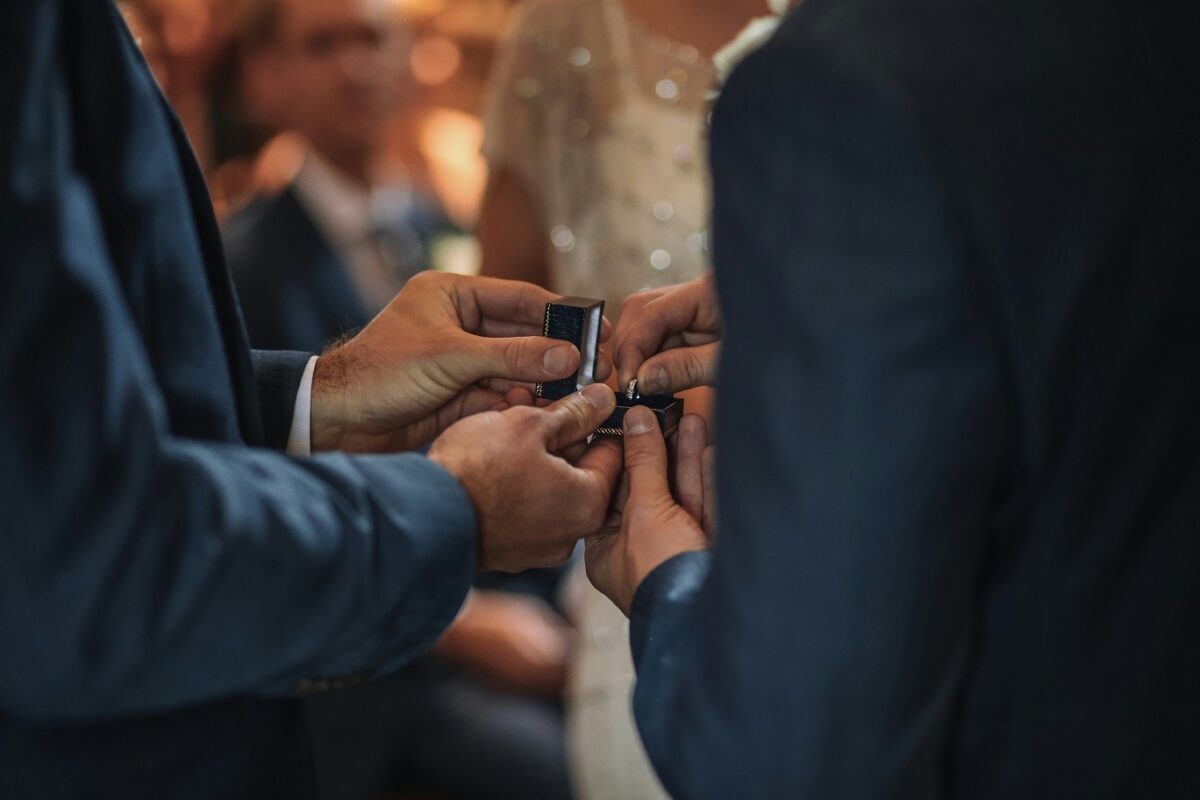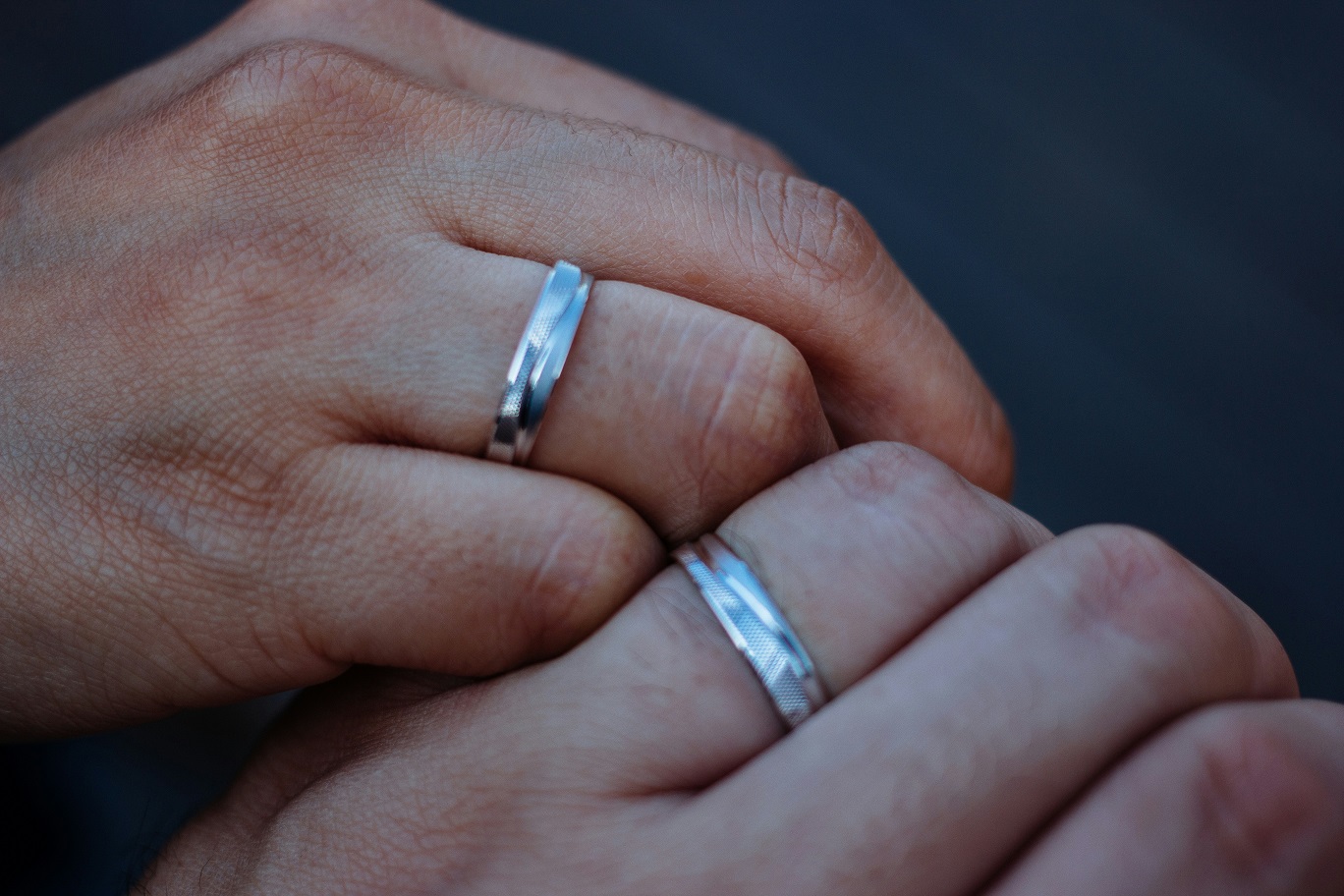Is same-sex marriage legal in the Philippines? No. Are same-sex civil unions legal in the Philippines? Also no. But that seems strange, right? The country is hailed as one of the most pro-LGBTQ+ nations in Asia, but how come the laws don’t reflect that?
LGBTQ+ rights are a key issue in the broader conversation about reproductive health in the Philippines, with civil unions and same-sex marriage being at the forefront of the debate.
While many countries have embraced marriage equality, the Philippines stands at a crossroads, balancing cultural traditions, political challenges, and the growing demand for equal rights.
For the LGBTQ+ community, the distinction between civil unions and marriage is more than just a matter of terminology—it’s about securing the same legal protections, benefits, and social recognition afforded to heterosexual couples. At the heart of this debate is the ongoing struggle for legal recognition and protection.
This article is a deep dive into civil unions and same-sex marriage, the movements advocating for equality, and the broader impact of legalization. Understanding these aspects sheds light on what’s at stake for love, family, and equality in the Philippines today.
What Is the Current State of Same-Sex Marriage in the Philippines?
The fight for same-sex marriage in the Philippines reflects both the challenges and hopes of the LGBTQ+ community. While global progress on marriage equality inspires many, the country’s current legal and societal landscape remains deeply rooted in traditional and conservative values.
Current legal framework
Same-sex marriage remains illegal in the Philippines, as the Family Code and other laws define marriage exclusively as a union between a man and a woman, leaving no room for alternative interpretations. Attempts to challenge this definition have faced significant legal hurdles, with courts often upholding the existing framework.

Without legal recognition, same-sex couples are denied rights to joint property, healthcare decision-making, and other protections afforded to heterosexual spouses. Even same-sex marriages legally done abroad are not recognized in the country.
Other progressive bills, such as ones targeting lacking sex education and divorce rights, often get tied up in the same red tape.
Public sentiment and cultural barriers
Traditional and religious beliefs strongly influence public opinion and legislative resistance. The Philippines’ predominantly Catholic population often views marriage equality as conflicting with deeply held spiritual values.
This cultural backdrop has made it difficult for progressive ideas to gain widespread acceptance. As is often the case, it seems as though the will of an entrenched, powerful minority is holding back progress against the wishes of a younger, more progressive majority.
Despite LGBTQ+ having a longstanding presence in Filipino culture and media, it remains an “open secret” because of religious conservatism.
Political climate
Efforts to address LGBTQ+ rights in the Philippines have primarily centered on the SOGIE (Sexual Orientation and Gender Identity Expression) Equality Bill. While this proposed legislation aims to combat discrimination, it does not explicitly legalize same-sex marriage.

The push for same-sex marriage in the Philippines has been hindered by repeated delays in Congress and the Senate, highlighting the political challenges in advancing LGBTQ+ rights. Despite these setbacks, advocacy groups and allies remain persistent, continuing to push for the SOGIE Bill and broader reforms to keep the conversation alive.
What Is the Difference Between Civil Unions and Same-Sex Marriage?
Civil unions and same-sex marriage both aim to recognize LGBTQ+ relationships, but they differ significantly in terms of scope, rights, and societal impact. Civil unions are often seen as a halfway measure, providing some legal protections without granting the full equality that marriage offers.
In contrast, same-sex marriage ensures comprehensive legal rights and symbolizes societal acceptance of LGBTQ+ relationships.
For LGBTQ+ couples, the distinction between civil unions and same-sex marriage goes beyond semantics—it shapes their legal rights, societal acceptance, and lived experiences. Understanding these differences is key to appreciating the broader implications of each.
| Aspect | Civil Unions | Same-Sex Marriage |
| Legal Rights | Limited protections (e.g., inheritance, healthcare decisions) | Comprehensive rights (e.g., joint adoption, spousal benefits, tax advantages) |
| Social Recognition | Seen as a compromise, lacking full societal acceptance | Symbolizes full inclusion and equality |
| Global Examples | Adopted in countries like Italy and Japan as a stepping stone | Recognized in progressive nations like Canada, the Netherlands, and Taiwan |
Legal rights
Civil unions offer limited legal protections, such as inheritance and healthcare decisions, but fall short of the comprehensive rights provided by marriage. Marriage grants crucial benefits, including joint adoption, spousal rights, tax advantages, and other legal entitlements critical for family security.
Social recognition
Civil unions are often seen as a middle ground, offering partial recognition without the full societal legitimacy of marriage. In contrast, same-sex marriage represents a milestone for equality, symbolizing complete inclusion and acceptance.
Even heterosexual civil unions and marriages face the same distinction in the Philippines because of the
Global examples
Globally, many countries initially introduced civil unions as a step toward broader reforms. For example, Japan offers civil unions or partnership arrangements but has yet to legalize same-sex marriage. Italy recognizes same-sex civil unions, with all the same rights except adoption.

On the other hand, nations like Canada, the Netherlands, and Taiwan have moved from civil unions to full marriage equality, recognizing that only marriage ensures true equality under the law.
What Are the Key LGBTQ+ Movements and Advocacy Efforts in the Philippines?
The fight for LGBTQ+ rights in the Philippines has been a long and challenging journey marked by resilience and determination. Leading this movement are passionate advocates, organizations, and allies working tirelessly to advance marriage equality and broader protections for the community.
Key advocacy groups
Organizations such as Metro Manila Pride, Rainbow Rights Philippines, and Bahaghari have become the backbone of the LGBTQ+ rights movement. These groups lead initiatives to promote awareness, provide resources, and lobby for inclusive legislation.
Metro Manila Pride, for instance, organizes the annual Pride March, uniting thousands to celebrate diversity and demand equality. Rainbow Rights focuses on legal reform and capacity-building, while Bahaghari amplifies grassroots activism to create change from the ground up.
Public awareness campaigns
Pride marches, like the one in Metro Manila, serve as powerful symbols of unity and visibility, rallying support for LGBTQ+ issues. Social media platforms further amplify these efforts, allowing advocates to reach wider audiences with campaigns that educate, inspire, and challenge societal norms.
Viral hashtags and campaigns, such as #ResistTogether, have fostered conversations about equality and inclusion.
Legal efforts and proposals
The fight for marriage equality and anti-discrimination laws has seen significant milestones, though progress remains slow. Landmark cases, like the 2015 petition for same-sex marriage by attorney Jesus Falcis, have sparked national debate, even if unsuccessful.
Meanwhile, the SOGIE Equality Bill continues to be a focal point for advocates, aiming to address discrimination based on sexual orientation and gender identity.
Challenges faced by advocates
Despite these efforts, resistance from conservative groups and religious institutions remains a formidable obstacle. The Philippines’ deeply Catholic roots influence public opinion and legislative action, mirroring the broader backlash seen in conservative societies worldwide.
Advocates often face social stigma and institutional roadblocks, but their resolve to create a more inclusive future remains steadfast.
Why Civil Unions are Not Enough?
While civil unions are often presented as a compromise, many LGBTQ+ advocates argue they fall short of true equality. Beyond legal rights, the distinction between civil unions and marriage sends a clear message about which relationships are deemed valid and worthy of full recognition.
Symbolism of marriage

Marriage has long been a universal symbol of love, commitment, and inclusion. Denying same-sex couples the right to marry implies that their relationships are less valid than those of heterosexual couples.
Civil unions, while offering limited legal protections, can feel like a second-class option—a concession rather than full acceptance. For advocates, marriage equality is not just about rights; it’s about affirming that love is equal, regardless of gender.
International human rights perspective
Globally, marriage equality is increasingly viewed as a fundamental human right. International organizations like the United Nations recognize that denying same-sex couples access to marriage constitutes discrimination.
Countries that have legalized same-sex marriage demonstrate that equality under the law strengthens society by fostering inclusivity and respect for diversity. By limiting LGBTQ+ couples to civil unions, the Philippines risks falling behind global human rights standards and perpetuating inequality.
Potential pitfalls of civil unions
Civil unions can unintentionally reinforce stigma and inequality by creating a separate legal category for same-sex couples.
This segregation undermines the dignity of LGBTQ+ individuals, suggesting that their relationships are less deserving of full recognition. Additionally, civil unions often lack the comprehensive legal protections and social legitimacy that marriage provides, leaving couples vulnerable in areas such as adoption, taxation, and spousal benefits.
The Potential Impact of Legalizing Same-Sex Marriage
Legalizing same-sex marriage in the Philippines would be transformative, with far-reaching effects on society, the economy, and cultural norms. Beyond granting equal rights to LGBTQ+ couples, it would create a more inclusive, modern, and forward-thinking nation.
Social impact

Marriage equality can strengthen family bonds by allowing same-sex couples to build secure, legally protected families. Legal recognition reduces discrimination and fosters greater societal acceptance, challenging harmful stereotypes about LGBTQ+ relationships.
For many, it affirms that their love is just as meaningful and valid as any other, contributing to a sense of dignity, inclusion, and belonging within Filipino society.
Economic benefits
Legalizing same-sex marriage could provide significant economic benefits, particularly for industries tied to weddings, hospitality, and tourism. LGBTQ+ couples would contribute to increased spending on wedding ceremonies, receptions, honeymoons, and related services, providing businesses a boost.
In the United States, economists estimate that from 2015 (the year of legalization) to 2020, gay marriages generated nearly $4 billion in revenue and supported 45,000 jobs. This figure doesn’t account for the indirect economic stimulus.
Marriage equality has been shown to enhance productivity and mental well-being among LGBTQ+ individuals. The security and recognition that marriage offers can reduce stress, improve mental health, and foster a more positive work environment, ultimately benefiting the economy.
Cultural significance
Legalizing same-sex marriage would align the Philippines with global progress and human rights standards. As more countries embrace marriage equality, the Philippines will demonstrate its commitment to modernity, inclusivity, and respect for diversity.
At the same time, it would reflect the evolving values of younger generations, who are increasingly open to equality and acceptance. Rather than diminishing Filipino cultural and religious traditions, marriage equality would modernize them, fostering a more compassionate and just society.
Equality in Love, Equality in Law
The journey toward legal recognition for same-sex couples is a step toward affirming love, dignity, and equality. Legalizing same-sex marriage can strengthen Filipino society by fostering inclusivity, reducing discrimination, and aligning with global progress.
It’s time to support the movement for equality and engage in open, compassionate conversations about LGBTQ+ rights.
At Pink Bunny, we believe in empowering individuals and couples to embrace their unique connections. Self-expression, love, and intimacy are essential to building strong relationships, and our range of adult toys and vibrators for sex celebrates these values. Whether you’re exploring your individuality or enhancing your bond, Pink Bunny’s products are here to support love in all its forms. Contact us today and discover items that inspire connection, confidence, and equality. Love is for everyone—let’s celebrate it together.




